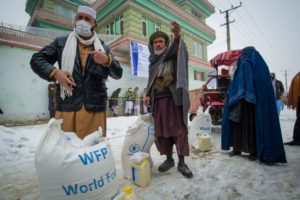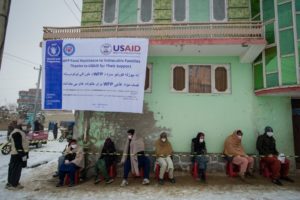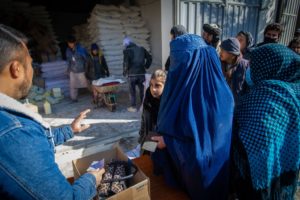-
February 2024
-
December 2023
-
November 2023
-
October 2023
- The Biden Impeachment Inquiry – Lesson
- The Biden Impeachment Inquiry – Quiz
- Israel vs Hamas: One Week in and Still at War – Lesson
- Israel vs Hamas: One Week in and Still at War – Quiz
- 2023 Nobel Prizes Announced – Lesson
- 2023 Nobel Prizes Announced – Quiz
- Trump Ordered Not to Mention Case Against Him – But Will It Last? – Lesson
- Trump Ordered Not to Mention Case Against Him – But Will It Last? – Quiz
-
September 2023
-
August 2023
-
July 2023
-
May 2023
-
February 2023
-
December 2022
-
November 2021
-
September 2022
-
August 2022
- The US Visits Taiwan Again – What Impact Will It Make? – Lesson
- The US Visits Taiwan Again – What Impact Will It Make? – Quiz
- Cold Showers and Hot Days: Europe Limits People’s Energy Use – Lesson
- Cold Showers and Hot Days: Europe Limits People’s Energy Use – Quiz
- Hidden Art Is Being Discovered Around the World – Lesson
- Hidden Art Is Being Discovered Around the World – Quiz
-
July 2022
- Last WWII Medal of Honor Recipient Will ‘Lie in State’ at US Capitol – Lesson
- Last WWII Medal of Honor Recipient Will ‘Lie in State’ at US Capitol – Quiz
- Canada and Denmark Make a Deal over Disputed Arctic Island – Lesson
- Canada and Denmark Make a Deal over Disputed Arctic Island – Quiz
- Texas Schools Spark Debate: What Should Kids Wear in Class? – Lesson
- Texas Schools Spark Debate: What Should Kids Wear in Class? – Quiz
-
June 2022
- New York Court Says: An Elephant is Not a Human – Lesson
- New York Court Says: An Elephant is Not a Human – Quiz
- Finance Classes at School – A New Trend? – Lesson
- Finance Classes at School – A New Trend? – Quiz
- NASA Will Study UFOs for the First Time – Lesson
- NASA Will Study UFOs for the First Time – Quiz
- New York City Removes Last Payphone – Or Does It? – Lesson
- New York City Removes Last Payphone – Or Does It? – Quiz
- US Hosts ‘Summit of the Americas’ – Lesson
- US Hosts ‘Summit of the Americas’ – Quiz
- The National Spelling Bee – A Time-Honored Tradition – Lesson
- The National Spelling Bee – A Time-Honored Tradition – Quiz
- Queen Elizabeth Marks 70 Years on Throne with Platinum Jubilee – Lesson
- Queen Elizabeth Marks 70 Years on Throne with Platinum Jubilee – Quiz
- Lifeguard Shortage Could Limit Summer Swimming – Lesson
- Lifeguard Shortage Could Limit Summer Swimming – Quiz
-
May 2022
- American Artist Warhol’s Painting Sells for Record Price – Lesson
- American Artist Warhol’s Painting Sells for Record Price – Quiz
- Western US Suffering From Harsh Drought – Lesson
- Western US Suffering From Harsh Drought – Quiz
- Time to Say Goodbye to Incandescent Lightbulbs? – Lesson
- Time to Say Goodbye to Incandescent Lightbulbs? – Quiz
- Tibetan Leader Visits Washington to Gain Support for His Culture – Lesson
- Tibetan Leader Visits Washington to Gain Support for His Culture – Quiz
-
April 2022
- Masks on Public Transport – Needed or Not? – Lesson
- Masks on Public Transport – Needed or Not? – Quiz
- Shanghai Under Strict Lockdown in ‘Zero-COVID’ China – Lesson
- Shanghai Under Strict Lockdown in ‘Zero-COVID’ China – Quiz
- Are Roundabouts a Good or Bad Addition to US Cities? – Lesson
- Are Roundabouts a Good or Bad Addition to US Cities? – Quiz
- Is it Chicken Kiev or Kyiv? A Scrumptious Spelling Problem – Lesson
- Is it Chicken Kiev or Kyiv? A Scrumptious Spelling Problem – Quiz
- Ketanji Brown Jackson Confirmed as Next Judge to Join Supreme Court – Lesson
- Ketanji Brown Jackson Confirmed as Next Judge to Join Supreme Court – Quiz
- Gas Prices Rise Dramatically Across America – Lesson
- Gas Prices Rise Dramatically Across America – Quiz
- Washington, DC Celebrates 110 Years of Cherry Blossoms in the City – Lesson
- Washington, DC Celebrates 110 Years of Cherry Blossoms in the City – Quiz
- Billionaire Elon Musk Tries to Buy Twitter – Lesson
- Billionaire Elon Musk Tries to Buy Twitter – Quiz
- Meet Patron, Ukraine’s Mine-Sniffing ‘Hero’ Dog – Lesson
- Meet Patron, Ukraine’s Mine-Sniffing ‘Hero’ Dog – Quiz
- Top American Officials Visit Ukraine in Secret – Lesson
- Top American Officials Visit Ukraine in Secret – Quiz
-
March 2022
- Supply Chain Crisis: Are Pop-Up Sites the Answer? – Lesson
- Supply Chain Crisis: Are Pop-Up Sites the Answer? – Quiz
- Fare Evaders Beware: New York Mayor to Tackle Subway Crime? – Lesson
- Fare Evaders Beware: New York Mayor to Tackle Subway Crime? – Quiz
- Time’s Up For Switching Clocks? Congress Considers Daylight Saving – Lesson
- Time’s Up For Switching Clocks? Congress Considers Daylight Saving – Quiz
- Ukraine’s President Addresses Congress as War Persists – Lesson
- Ukraine’s President Addresses Congress as War Persists – Quiz
- No More Meat? New York Mayor Decrees Vegan Fridays for Schools – Lesson
- No More Meat? New York Mayor Decrees Vegan Fridays for Schools – Quiz
- Big Business Shuns Russia Over Ukraine Invasion – Lesson
- Big Business Shuns Russia Over Ukraine Invasion – Quiz
- ‘People’s Convoy’ Loops Around US Capital in COVID Protest – Lesson
- ‘People’s Convoy’ Loops Around US Capital in COVID Protest – Quiz
- From Train Robberies to Stores – US Sees a Rise in Crime – Lesson
- From Train Robberies to Stores – US Sees a Rise in Crime – Quiz
- President Biden Gives His First State of the Union Speech – Lesson
- President Biden Gives His First State of the Union Speech – Quiz
-
February 2022
- Ukraine War Continues as Peace Talks Begin – Lesson
- Ukraine War Continues as Peace Talks Begin – Quiz
- US States Say Farewell to COVID Rules – Lesson
- US States Say Farewell to COVID Rules – Quiz
- Russia Launches Invasion of Ukraine – Lesson
- Russia Launches Invasion of Ukraine – Quiz
- Feuds Erupt as States Redraw Voting Maps – Lesson
- Feuds Erupt as States Redraw Voting Maps – Quiz
- Monobob Makes Olympic Debut – Lesson
- Monobob Makes Olympic Debut – Quiz
- Canadian Truckers Stage Major Protest Against COVID Laws – Lesson
- Canadian Truckers Stage Major Protest Against COVID Laws – Quiz
- U.S. Sends Troops to Europe as Ukraine-Russia Tensions Rise – Lesson
- U.S. Sends Troops to Europe as Ukraine-Russia Tensions Rise – Quiz
- Winter Olympics Begin in Beijing Amid Calls for Boycott – Lesson
- Winter Olympics Begin in Beijing Amid Calls for Boycott – Quiz
- Afghanistan Faces a ‘Tsunami of Hunger’ Under the Taliban – Lesson
- Afghanistan Faces a ‘Tsunami of Hunger’ Under the Taliban – Quiz
- Dealing With Omicron: COVID Rules Around the World – Lesson
- Dealing With Omicron: COVID Rules Around the World – Quiz
-
January 2022
- Teen Pilot Becomes Youngest Girl to Fly Solo Around the World – Lesson
- Teen Pilot Becomes Youngest Girl to Fly Solo Around the World – Quiz
- No More Meat and Potatoes? Supply Down and Prices Up – Lesson
- No More Meat and Potatoes? Supply Down and Prices Up – Quiz
- Flight Confusion as 5G Causes Safety Worries – Lesson
- Flight Confusion as 5G Causes Safety Worries – Quiz
- English Translations on French ID Cards? Some say ‘Non!’ – Lesson
- English Translations on French ID Cards? Some say ‘Non!’ – Quiz
- Omicron: Did COVID Catch the Common Cold? – Lesson
- Omicron: Did COVID Catch the Common Cold? – Quiz
- Five Countries Agree: Nuclear War Must Be Avoided – Lesson
- Five Countries Agree: Nuclear War Must Be Avoided – Quiz
- Enes Kanter’s American Dream Come True – Lesson
- Enes Kanter’s American Dream Come True – Quiz
- U.S. Bans Products Linked to Uighur Slavery – Lesson
- U.S. Bans Products Linked to Uighur Slavery – Quiz
- Time Capsules Found in Base of Robert E. Lee Statue – Lesson
- Time Capsules Found in Base of Robert E. Lee Statue – Quiz
-
December 2021
- Russia and US Lock Horns Over Ukraine Border – Lesson
- Russia and US Lock Horns Over Ukraine Border – Quiz
- US Military Starts New UFO Research Group – Lesson
- US Military Starts New UFO Research Group – Quiz
- Omicron COVID Strain Comes Out of South Africa – Lesson
- Omicron COVID Strain Comes Out of South Africa – Quiz
-
November 2021
- La Niña Weather Patterns May Affect the US This Winter – Lesson
- La Niña Weather Patterns May Affect the US This Winter – Quiz
- Dads on Duty Help Out at Louisiana High School – Lesson
- Dads on Duty Help Out at Louisiana High School – Quiz
- The Price of Thanksgiving Goes Up in 2021 – Lesson
- The Price of Thanksgiving Goes Up in 2021 – Quiz
- Airlines Struggle with Flights Ahead of the Holidays – Lesson
- Airlines Struggle with Flights Ahead of the Holidays – Quiz
-
October 2021
- Crisis and Kidnappings in Haiti – Lesson
- Crisis and Kidnappings in Haiti – Quiz
- US Feels Effects of Computer Chip Shortage – Lesson
- US Feels Effects of Computer Chip Shortage – Quiz
- California Oil Spill Investigations – Lesson
- California Oil Spill Investigations – Quiz
- Michigan Governor Vows to Fix Lead-Infected Water Supply – Lesson
- Michigan Governor Vows to Fix Lead-Infected Water Supply – Quiz
- Nobel Prize Winners Announced – Lesson
- Nobel Prize Winners Announced – Quiz
- COVID and School – Rules Vary Across the Nation – Lesson
- COVID and School – Rules Vary Across the Nation – Quiz
- Toilet Paper Shortage 2.0? – Lesson
- Toilet Paper Shortage 2.0? – Quiz
- A Very Merry COVID Homecoming? – Lesson
- A Very Merry COVID Homecoming? – Quiz
- Merck COVID Pill – A New Way to Treat the Virus? – Lesson
- Merck COVID Pill – A New Way to Treat the Virus? – Quiz
- Eruptions at La Palma and Kilauea Volcanoes – Lesson
- Eruptions at La Palma and Kilauea Volcanoes – Quiz
-
September 2021
- US Joins UK and Australia in ‘AUKUS’ Defense Deal – Lesson
- US Joins UK and Australia in ‘AUKUS’ Defense Deal – Quiz
- Rules Change for Travelers to the US – Lesson
- Rules Change for Travelers to the US – Quiz
- Is There a Crisis at the Southern Border? – Lesson
- Is There a Crisis at the Southern Border? – Quiz
- What’s Going On With COVID-19? – Lesson
- What’s Going On With COVID-19? – Quiz
- Biden Announces 6-Step COVID Plan – Lesson
- Biden Announces 6-Step COVID Plan – Quiz
- Private Rescue Missions in Afghanistan – Lesson
- Private Rescue Missions in Afghanistan – Quiz
- China’s Crackdown on Video Games – Lesson
- China’s Crackdown on Video Games – Quiz
-
August 2021
- US Military Has Left Afghanistan – But What About Those Left Behind? – Lesson
- US Military Has Left Afghanistan – But What About Those Left Behind? – Quiz
- Hurricane Ida Tests New Orleans – Lesson
- Hurricane Ida Tests New Orleans – Quiz
- Records Set for Paralympic Games – Lesson
- Records Set for Paralympic Games – Quiz
- Storms in Tennessee and Northeast Cause Floods – Lesson
- Storms in Tennessee and Northeast Cause Floods – Quiz
Afghanistan Faces a ‘Tsunami of Hunger’ Under the Taliban – Lesson

(Photo by Scott Peterson/Getty Images)
Western Leaders met with the Taliban in hopes of helping the Afghan people – but was it the right thing to do?
The United States military left Afghanistan last summer, leaving the country ruled by the Taliban, an extreme Islamist group. Recently, the group joined Western leaders in Oslo, Norway. The meeting included officials from the United States, United Kingdom, and Germany. The main focus of the talks was the humanitarian crisis in Afghanistan, where a shortage of food has become a big problem.
The goal was to help western leaders and the Taliban work out their differences in hopes of helping the people of Afghanistan receive aid, food, water, and shelter. However, many human rights activists were outraged that world leaders would meet with the Taliban due to the group’s poor treatment of women and girls.
Humanitarian Crisis

(Photo by Scott Peterson/Getty Images)
The United Nations (U.N.) recently asked the world for about $5 billion in aid for Afghanistan. This is the largest amount of money the U.N. has ever requested for a single country. It aims to prevent the “world’s most rapidly growing humanitarian crisis” from becoming worse.
Since the U.S. left, half a million Afghans lost their jobs. There is also a currency shortage, meaning a lack of physical coins and bills. The little food available in the country is too expensive for the people. According to the U.N., nearly 23 million Afghans face extreme hunger. That’s more than half the population. The winter months will only worsen the problem. Nine million people are at risk of famine, and 97% of the population are in poverty.
The United States recently pledged to send an additional $308 million in aid for Afghans, making a total of $780 million since October. Families and small organizations that send supplies, food, and assistance are finding it difficult to make sure their shipments reach the right people.
Human Rights Concerns

(Photo by Scott Peterson/Getty Images)
Human rights are rights believed to belong to every person on the planet, regardless of race, gender, nationality, religion, age, or any other status. Some of these rights include freedom from slavery or abuse, freedom of expression and opinion, and the right to education. The Taliban has been heavily criticized for violating women’s human rights. They impose extreme Sharia rules for females. Women and young girls are told how to dress, where they can go, who they can spend time with, and whether they can be educated or hold a job. If they do not follow the strict laws, women and young girls are abused by the Taliban. However, this “new” version of the group promises to be different.
According to the Afghan Foreign Ministry spokesperson, the Taliban insists “there are absolutely no restrictions on any girls or women attending schools from primary to higher education.” He also claims the Taliban forces never “threaten women ever, and they have a lot of respect for women.” However, reports show that females have been stopped from going to school or work since the Taliban took over the country. So far, women have been restricted from returning to their jobs, forced to wear their hijabs when traveling in a taxi, and cannot travel on trips longer than 45 miles without a male relative accompanying them.

In Oslo, Afghan leaders claimed they would open schools for women and children in late March. The world will have to wait and see if they follow through on their promise.
A group of United Nations human rights experts say the Taliban government is trying to erase women and girls from public life. They suggest the government is punishing women into poverty and stopping them from making their own money. Women have taken to the streets to protest and, in response, have been threatened, beaten, and arrested.
Human rights advocates suggest world leaders shouldn’t deal with the Taliban, but others say Afghanistan needs help or the people may starve. What is the right answer?